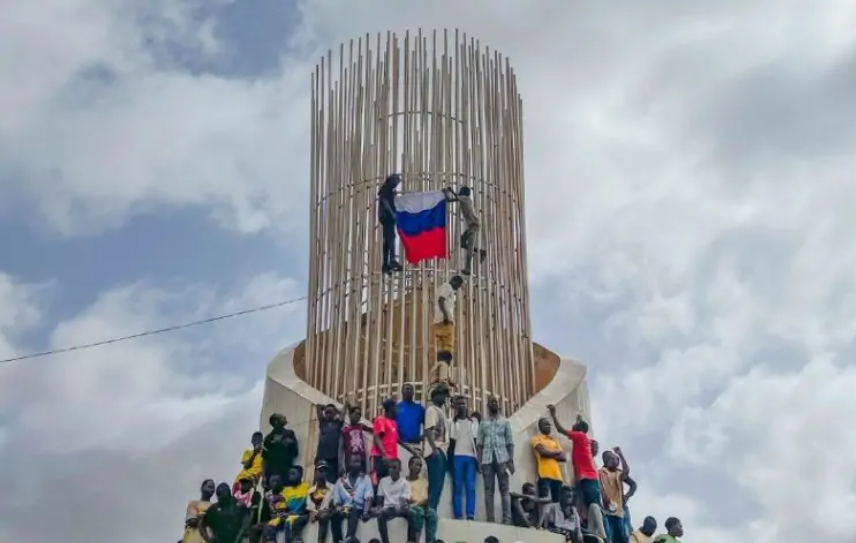US-Nigerian Relations Strained as Niger Turns to Russia Amid Concerns of Growing Russian Influence in Africa
Niger’s Pivot to Russia
Niger’s recent announcement of the termination of its military agreement with the US marks a notable departure in its foreign policy, signaling a shift towards embracing Russia's influence in the region. This decision, amid escalating tensions between the US and Niger's junta-led government, stems from concerns over Russia’s expanding military footprint in the Sahel. It underscores the intricate web of geopolitical dynamics in northwest Africa and raises uncertainties about the future of US-Nigerian relations.
US Concerns and Diplomatic Strains
The decision to dissolve the military pact follows a strained meeting between Niger’s military junta and top US diplomatic and military figures, including Gen. Michael Langley. US officials voiced apprehensions regarding Russia’s military activities in Niger and the fate of Air Base 101, pivotal for US counterterrorism operations in the area. Niger's move to terminate the agreement reflects mounting frustration with perceived US interference in its internal affairs, exacerbating diplomatic tensions.
Implications for Regional Security and Geopolitics
Niger’s shift towards Russia sparks concerns about the diminishing US influence in northwest Africa and the broader Sahel. With Russia deepening military ties with Niger, there are fears of Moscow establishing a foothold in the Sahel, potentially destabilizing the region. Additionally, the move complicates counterterrorism endeavors, as the US presence in Niger has been instrumental in combating extremist factions. Amidst escalating geopolitical rivalries, the Sahel confronts heightened insecurity and challenges.
US Response and Regional Impact
The US has expressed apprehension over Niger’s decision and maintains communication with the junta-led government. However, the termination of the military accord raises doubts about the future of US military presence in the nation. A potential withdrawal could significantly impact regional security and counterterrorism efforts. US drone operations from Air Base 101 have played a crucial role in monitoring Sahel threats, and any disruption to these operations could embolden extremist elements.
Evolving Russian Presence and Strategic Objectives
Russia's expanding presence in Niger underscores its strategic interests in the region, encompassing access to resources and arms sales. The Kremlin's attempts to court Niger’s military junta highlight its aspirations to broaden influence in northwest Africa. By offering military support without the human rights stipulations imposed by the US, Russia presents an appealing alternative to Niger. Heightened competition among global powers for influence in the Sahel could exacerbate instability and conflict.
Future Prospects and Hurdles
As Niger navigates its evolving foreign policy landscape, it confronts multifaceted challenges and uncertainties. Striking a balance between US and Russian relations while addressing domestic political dynamics poses significant hurdles for the junta-led government. The decision to terminate the military agreement reflects broader shifts in African geopolitics and underscores the region's pivotal role in global power dynamics. As the US reevaluates its strategy in northwest Africa, it must contend with Russia's growing influence and other external actors shaping regional affairs.




Comments
Post a Comment